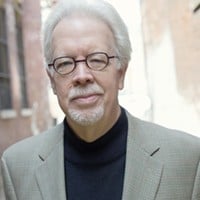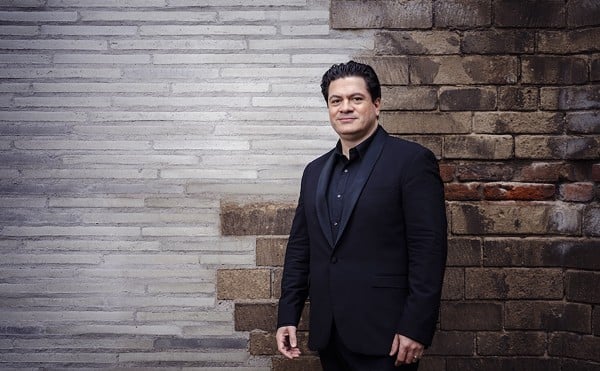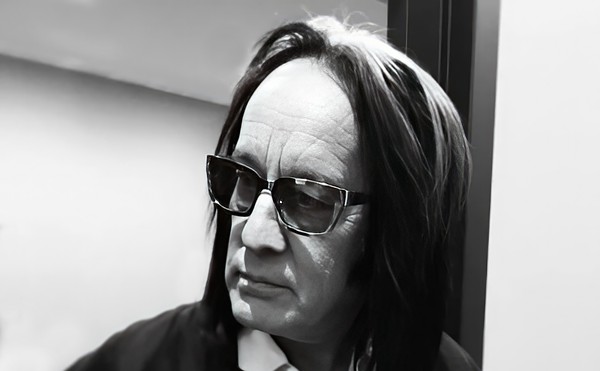|
Amid the cacophony of music in the '60s, a few disciplined, traditional voices surfaced: First among them was Judy Collins, whose deliberate, bell-like soprano didn't have the off-key slant of Joni Mitchell or the political fervor of Joan Baez. Collins emphasized the lyrics and pristine delivery.
She began her musical career at 13 as a pianist, performing a Mozart concerto. But Folk music — especially songs by Woody Guthrie and Pete Seeger — soon enticed her. Even as a young singer, however, her repertoire was broad and eclectic, from musical theater — her melancholic "Send In the Clowns" surely gave Stephen Sondheim the broadest commercial exposure he's ever had — to Bob Dylan and other social poets of her time. Collins was the first to record Leonard Cohen's songs. When she sang Mitchell's "Both Sides Now," it exemplified her simple, pure approach that cut through the crap and sounded like simple truth.
In 1969, a few years after Collins appeared on the scene, three Rock musicians came together for the first time at Woodstock. Before an audience of a half-million, they sang in harmonies that enchanted a generation: David Crosby, Stephen Stills and Graham Nash (telling the massive crowd they were "scared shitless") constituted a virtuoso trio.
"When we heard Nash put on that third harmony," Crosby has said, "I thought I was gonna die ...
It was about the rightest thing I ever heard." One of their Woodstock songs, "Suite: Judy Blue Eyes," exemplified the distinctive sound of Crosby, Stills and Nash (CSN). Its inspiration was none other than the "ruby-throated sparrow," Judy Collins.
In a recent phone conversation, I ask Collins about the tune. "I lived Stephen Stills; I had an affair with him," she says matter-of-factly. The relationship didn't last — in fact, the song is about its ups and downs — but the song it inspired became a classic. Collins says, "It's still one of the most beautiful songs I've ever heard. It was a real privilege to be honored in such a way."
Given their intertwined histories and long performing careers, it's surprising Collins hasn't crossed musical paths with CSN. That gets fixed Saturday evening here in Cincinnati, when she and Crosby join forces at the Aronoff Center for the Arts. It's a special one-night-only concert: Collins tells me it might happen again in a few places (they're booked in Las Vegas at the end of October), but this is an experiment.
"It sounded like a good idea," she says. "We thought we'd try it out and see what happens. We'll do it together, and we'll have a good time. I'll open it up and sing a couple of songs and get people comfortable, then introduce David. He'll sing his set. Then I'll come back and do mine. Then we'll come and sing a couple of duets."
Collins has recorded 37 albums over four decades. Asked why her career has lasted, she says it's the music. "It's so timeless, and people know that. There is a particular Judy Collins 'sound,' " she observes. "The choices are my choices. It's a matter of individual preferences and years of experience in what works and what doesn't work."
Since 9/11, Collins, a New Yorker for 42 years, has committed much energy to healing efforts. Her newest composition, "Kingdom Come — The Fireman Song," is dedicated to firefighters who risked and lost their lives. She'll sing it Saturday night, and you can hear it on her Web site, www.judycollins.com.
Over the past year Collins has visited fire stations and gotten involved with firefighters. "Part of the proceeds of the song go to a scholarship fund for the firefighters, for school for them and for their kids. I've been visiting a lot of firehouses in our boroughs. Tuesday I was out in the Bronx: I visited three firehouses there, and two in the city. They all lost men — five, six, seven, eight, one on the East Side lost nine guys. One of the things that's so profoundly moving is the relationship between the community and firehouses. I think the 66th Street firehouse had to shut their doors and say, 'No more': We've got to get on with our lives."
David Crosby has had to get on with his own life, too. His dizzying trek has included highs and lows of creative expression, political activism and personal growth. Crosby — a two-time inductee in the Rock 'n' Roll Hall of Fame for his early work with The Byrds and his longtime partnering with Stills, Nash and Neil Young — is a survivor of a long-term substance abuse problem that landed him in prison for a year in the 1980s and destroyed his liver, necessitating a transplant. Now healthy and sober, he's performing again, often with his biological son, keyboardist James Raymond, whom he'd never known as a child. They play with guitarist Jeff Pevar in their new band, CPR.
On Saturday evening singer/songwriter Joni Mitchell's presence will be felt. Collins' rendition of Mitchell's "Both Sides Now" was one of the her earliest hits. Crosby produced Mitchell's debut album.
As an Oberlin College freshman in the fall of 1967, I sat in the balcony of Finney Chapel and heard Collins sing Mitchell's lyrics: "I've looked at life from both sides now/From win and lose and still somehow/It's life's illusions I recall./I really don't know life at all." Thirty-five years later, she and Crosby have seen life from both sides. Their merged vision and voices — which we'll hear Saturday evening — will show us what they've learned of love and life. I'm eager to hear it.
JUDY COLLINS and DAVID CROSBY, presented by the Cincinnati Arts Association, perform at the Procter & Gamble Hall at the Aronoff Center, 650 Walnut St., Downtown, on Saturday evening.






